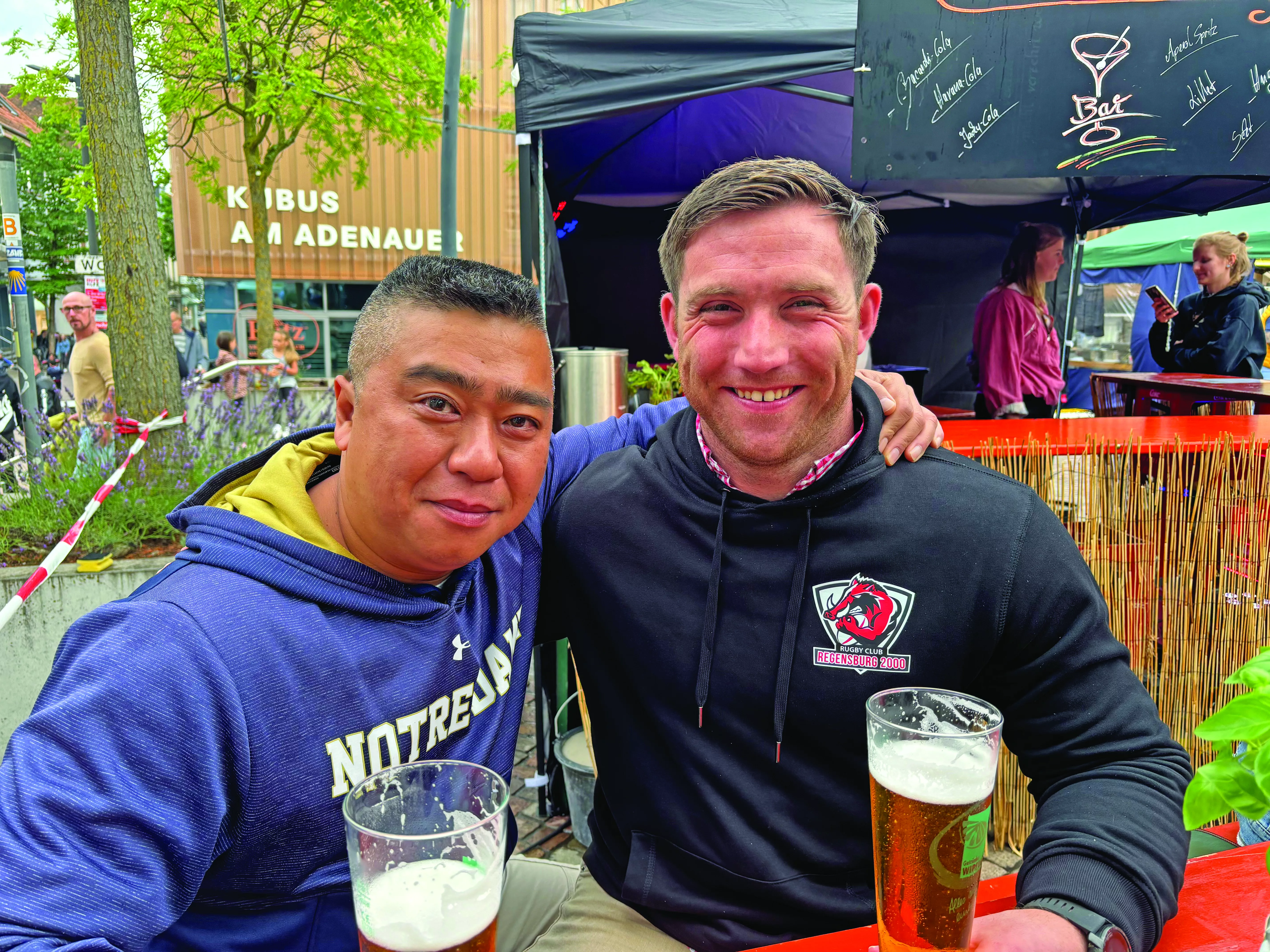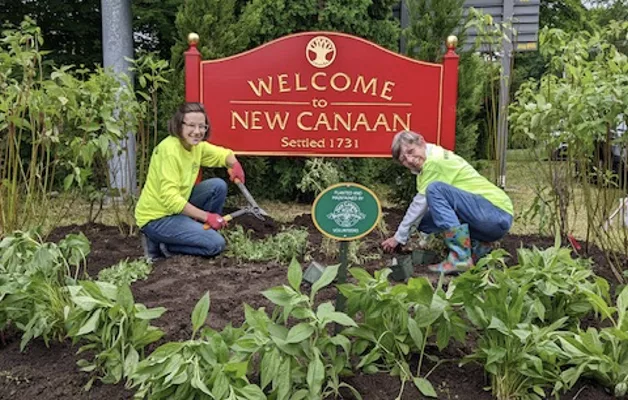
By Francis Ambrogio
This year, I spent another Independence Day away from home – this time, in Germany. Like anyone not at home, I missed family cookouts (my Army buddies from the South would go ballistic if I were to call anything that doesn’t meet their stringent standards a “barbecue”), and I missed American fireworks and beer – actually, I take that back… German beer, on the whole, is superior. As someone who grew up in Greenwich, I missed the parades and the bunting, as well as the exciting Salute to Veterans that was part of our town’s annual pageantry for so many years. But this longing is simply part of the life of a soldier, or really, anyone who is far from home.
That said, I spent this July 4th in a special way. The world is small, and with our modern technologies, it’s even smaller. By chance, an old comrade of mine from my service in Korea was here in Germany. Mr. Yang, Sung-Sang, or “Joey,” was the interpreter in our headquarters back then, and since his sister and her family live in Germany, he visits a few times a year. Joey, who grew up in the United States for many years, served as an officer in the Republic of Korea Marine Corps, and now facilitates the day-to-day interactions between the Korean and American militaries, is a living, breathing link in the ROK-US alliance.
In my current assignment, I observe, coach, and train US, NATO, and Ukrainian troops. We create challenging, stressful, and realistic training scenarios to test them and help them improve their readiness for war. This training is the groundwork of our alliances and partnerships. The more ready our troops are, and the more seamlessly we are able to operate alongside one another, the more likely we will be able to prevent war – and if it were to break out, to win.
Given my current role, as well as the work I’d done with Joey, spending the 4th with Korean and German friends carried a unique resonance. We don’t use the term “free world” as much as we used to during the Cold War, but that idea still matters. For all of our differences, the US and the many nations it calls friends hold so, so much in common. On that foundation of values, we have built a world more free, open, and prosperous than any generation before us could possibly have imagined. I saw this in person on the 4th here in Germany, and I see it daily here, as I saw it when I was stationed in Korea.
It is easy for us – especially in the United States – to take this world and its benefits for granted. A few weeks ago, I road tripped across Lithuania with a rugby teammate from Greenwich High School. I could not help but notice, everywhere I looked, the Lithuanians’ collective effort to move on from their country’s past domination by Soviet Russia, and the tyranny, stagnation, and degeneration that came with it. Just walking down a street in Vilnius or Kaunas or any other city, or even driving through the countryside, the architecture and the infrastructure speak to this effort – and loudly. New, shining buildings stand next to the proudly restored edifices of Lithuania’s first independent period as a republic during the 1920s and 30s. Yet all around, one can see the crumbling detritus of the Soviets’ shoddy construction. Roads and sidewalks are not simply fixed or maintained – they are completely ripped up and replaced, such was the Soviets’ habit of making things of poor quality. Memorials to heroes who bravely fought for independence are ubiquitous, and perhaps the nation’s most poignant commemoration is the almost haunting Hill of Crosses – a pilgrimage site where Lithuanians have prayed for their fallen who struggled against the domination of Russian tsars, Nazi maniacs, and Soviet commissars. I myself have worked with Lithuanian soldiers – and they were, without question, some of the finest troopers I have ever encountered. As they put it: “We have bad neighbors.” The Lithuanians, still relatively new members of the free world, certainly do not take it for granted.
My Independence Day this year was a direct result – on a personal level – of the world we and our allies have built. Thanks to this world, an American Army officer and his old Korean comrade celebrated the United States’ independence in Germany. It’s worth noting that Germany was once our enemy not only in one, but two world wars – and now they are the closest of allies. No other great power in history has done what the United States has in helping defeated enemies rebuild, stand on their own two feet, and become friends. There is a reason that other countries want to be part of the free world. I was fortunate enough to celebrate our holiday here, far from home but among friends, and to reflect in real time on what we have built, and what we still stand for.
Francis Ambrogio is a Cos Cob native who currently serves as a cavalry officer in the US Army. He graduated from the US Military Academy at West Point in 2015, and he is currently stationed in Bavaria, Germany. The opinions expressed are his own.


